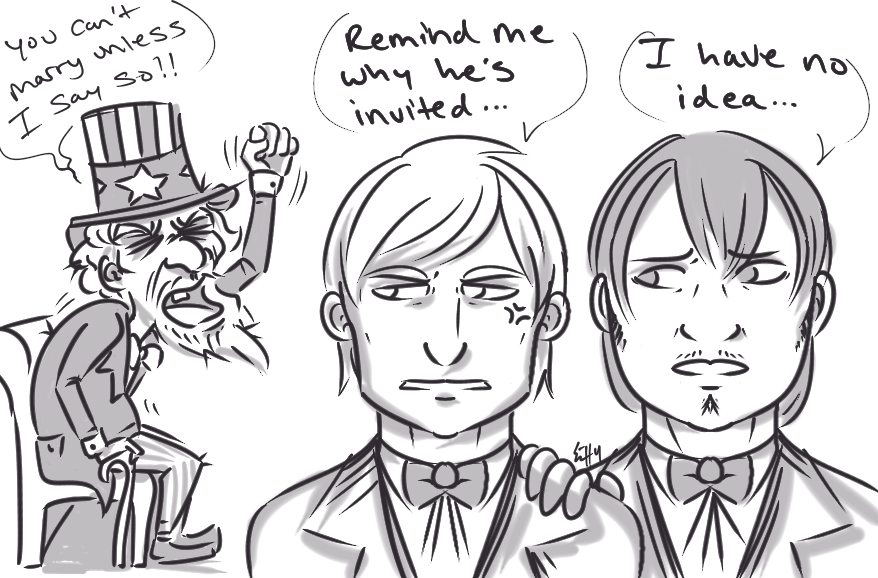Same-sex couples in North Carolina are now allowed to marry, after a federal judge’s ruling effectively struck down the state’s constitutional amendment banning same-sex marriage. But we shouldn’t be legalizing same-sex marriage.
It’s true that same-sex couples should have the same rights as heterosexual couples. If the government legally allows straight marriage, then it should also allow same-sex marriage. Equal protection under the law is guaranteed to all citizens by the 14th Amendment.
The problem arises in how we, as a society, approach the concept of matrimony. Why should the government have to “allow” marriages to happen in the first place?
For most of history, people married without the approval of any governmental body. “The American colonies officially required marriages to be registered, but until the mid-19th century, state supreme courts routinely ruled that public cohabitation was sufficient evidence of a valid marriage,” wrote Stephanie Coontz, a history professor at Evergreen State College. “By the later part of that century, however, the United States began to nullify common-law marriages and exert more control over who was allowed to marry.”
In the early 20th century, states used marriage laws to prohibit whites from marrying minorities. That’s right—state control over marriage was, at least in part, born out of racism.
As courts began to strike down laws barring interracial marriage, licenses became proof of marriage required to transfer benefits or rights. This became a central argument for legalizing same-sex marriage. Same-sex couples argued that without government recognition of their relationships, they were denied the right to receive medical information on each other, or to have the same hospital visitation rights as straight couples, for example. These privileges, granted by the government through marriage licenses, are precisely the type of “equal protection” the 14th Amendment was meant to protect.
But we don’t need a government-sanctioned legal institution of marriage to solve these problems. In fact, only dispersing benefits and rights to married couples, straight or gay, discriminates against two other groups: single people and couples who choose not to marry. Unmarried couples, no matter how long they’ve been together, lack the same rights same-sex couples fought to gain. And singletons miss out on benefits and tax advantages afforded to married couples. Though more and more states are legalizing same-sex marriage, true equality would encompass unmarried couples and singles as well.
Fortunately, there’s an easy solution: Get the government out of the marriage business. Marriage is, essentially, a contract between two people. There is no reason why we should treat it any different from any other contract.
In most contracts, individual parties decide on a set of terms, and the state has the power to enforce those terms. Those individual parties are not required to secure a “license” from the state before they enter a contract. There is no reason why marriage should be treated any different. A private marriage contract would still suffice for the purpose of distributing rights and benefits to the parties involved. This is how marriage was handled for most of history. It makes no sense to retain a system that is inherently flawed (in its discrimination of certain groups) and which was initially devised out of bigotry.
Comedian Doug Stanhope joked, “If marriage didn’t exist, would you invent it? Would you go ‘Baby, this [thing] we got together, it’s so good we gotta get the government in on [it].’”
I don’t know about you, but I wouldn’t.
We shouldn’t be fighting to legalize same-sex marriage; we should be fighting for a more rational approach to the concept in the first place.








